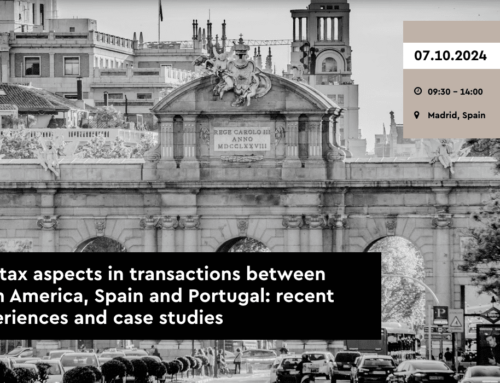The Directorate General for Security and Public Faith, in its Resolution of 23 February 2023, has ruled on the need to present the assessment/payment of the Transfer Tax and Stamp Duty (AJD) in order to be able to register the completion deed of a construction project.
The Property Registrar suspended the classification of the registration on the grounds that the payment of the AJD Tax had not been accredited, against which the notary who authorised the deed of completion appealed, arguing that this did not constitute a deed subject to the tax and that the corresponding tax had already been settled in the deed granted two years before the declaration of the construction work, which was registered as the corresponding tax had already been paid.
In order to determine whether the tax qualification of the transaction by the registrar was necessary in the case analysed, the Governing Centre points out that, in accordance with its doctrine, it is necessary for the property registrar to qualify the validity and lawfulness of any transaction whose registration is being pursued and to determine whether or not the stated transaction is subject to tax, although this qualification will not be definitive and will be subject to verification by the Tax Administration.
Likewise, based on Articles 254 and 255 of the Mortgage Law, the Centre reiterates the requirement to impose a veto on any registration action that does not comply with the corresponding tax obligations, and the registrar must verify compliance in order to be able to make the registration entry in the Property Registry. Be reminded that Article 254 of the Mortgage Law establishes that no entry may be made in the Property Registry without prior accreditation of assessment/payment of the corresponding taxes.
Likewise, Article 54 of the Revised Text of the Law on Transfer Tax and Stamp Duty states that “No document containing deeds or contracts subject to this tax shall be admitted or take effect in a Public Office or Registry without proof of payment of the tax debt in favour of the Tax Administration competent to demand so, the exemption thereof declared by the same, or at least the presentation of the stated document (…)”.
Finally, it is reminded that, for the purposes of the assessment of the AJD tax, it is often complex to determine whether the object of the deed is “a quantity or a thing of value”, which is a controversial issue. After citing the Supreme Court ruling of 18 May 2020, where in the case in question the High Court stated that the completion deed “is essential in order to determine all the essential elements of the tax”, the Directorate General concludes that it is up to the Tax Office to declare whether or not it is subject to the tax, and therefore confirms the suspension of the Property Registrar’s evaluation because the corresponding tax assessment has not been filed.








